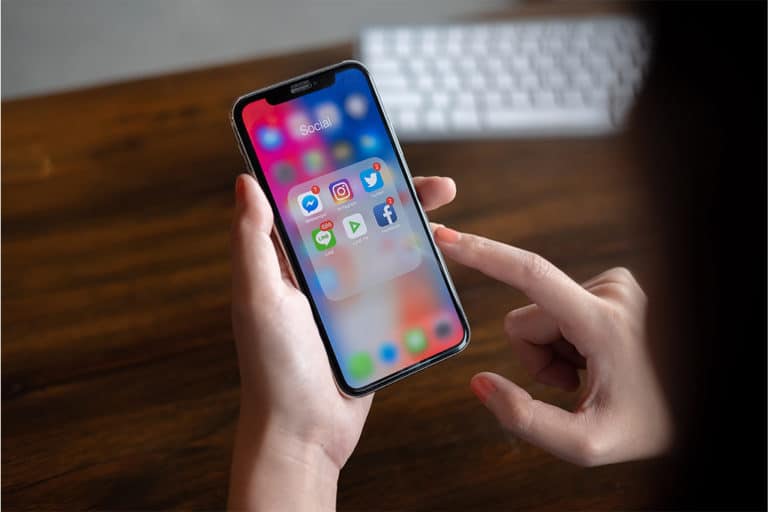Signal, the veteran encrypted messengers operated by the non profit Signal Foundation Says it’s seeing a huge increase of new users signing up to the platform after the critics from Tesla CEO Elpn Musk to Whatsapp for its changes in Privacy Policies from February 8th.
The pressure of new users signing up to the platform Is so big that the company is experiencing delays in phone number verifications of new accounts across all cell providers.
As for what or who is responsible for so many new users interested in trying the platform, which is operated by the nonprofit Signal Foundation, there are two likely culprits: Tesla CEO Elon Musk and Signal competitor WhatsApp.
Verification codes are currently delayed across several providers because so many new people are trying to join Signal right now (we can barely register our excitement). We are working with carriers to resolve this as quickly as possible. Hang in there.
— Signal (@signalapp) January 7, 2021
Last night Elon Musk, who is now the world’s richest person in net worth worldwide, tweeted a meme last night criticizing Facebook for the role they played in coordinating and helping members of the mob that stormed the US Capitol on Wednesday. The tweet showed an image of a series of larger dominos, juxtaposed the start of Facebook as a hot-or-not women-rating website on the campus of Harvard University all the way into a platform that facilitated the attack on Congress on Wednesday while it attempted to certify Joe Biden as the president-elect.
Musk, who is very critical of Facebook in recent years, followed up the meme with a suggestion to his 41.5 million followers to download Signal, presumably instead of using Whatsapp though he didn’t used any names.
As for the WhatsApp controversy, there is a growing restlessness again Whatsapp resulting from the company’s plans to implement a new privacy policy on February 8th.
That policy no longer includes language indicating it will allow users to opt out of data sharing with parent company Facebook. Instead, the new policy expressly outlines that WhatsApp will share data (your phone number, profile name, and address book info) with Facebook.
“As part of the Facebook family of companies, WhatsApp receives information from, and shares information with, this family of companies,” the new privacy policy says. “We may use the information we receive from them, and they may use the information we share with them, to help operate, provide, improve, understand, customize, support, and market our Services and their offerings.”
“As part of the Facebook family of companies, WhatsApp receives information from, and shares information with, this family of companies,” the new privacy policy says. “We may use the information we receive from them, and they may use the information we share with them, to help operate, provide, improve, understand, customize, support, and market our Services and their offerings.”
The opt out option was not spotted recently it was a one-time option introduced in 2016, and WhatsApp’s privacy policy has kept language referencing it since. However a Facebook spokesperson said that the changes going into effect next month are designed to address data sharing between Facebook and WhatsApp with regard to messaging with businesses, and that nothing is effectively changing with regard to consumer chats.
The spokesperson said that Facebook disclosed these changes back in October with the announcement of new WhatsApp customer service and shopping features, some of these features went live last month.
2/5 It has been incorrectly reported that WhatsApp's latest Terms of Service and Privacy Policy update requires users in the European Region to agree to the sharing of data with Facebook for ads purposes in order to continue using the service. This is false.
— Niamh Sweeney (@NiamhSweeneyNYC) January 7, 2021
The new privacy policy notice doesn’t help Facebook’s either, it tells users that they are already displeased with the changes — which, again, are about how businesses manage their chats on WhatsApp using Facebook’s backend — to “delete their account,” without providing another solution.
All of this created a huge revolt on social media in which WhatsApp users appear to be migrating from the platform in large numbers to join Signal. Lets not forget that Signal Messenger, LLC, was co-founded by Brian Acton, the disillusioned WhatsApp co-founder who publicly criticised his former employer’s (Facebook) privacy practices.
The positive side for Signal is that this combination of events and social mess is generating lots of interest for its platform as an alternative to the Facebook ecosystem.
In response to the late controversy, WhatsApp has issued a lengthy statement clarifying that the updated privacy policy “does not change WhatsApp’s data sharing practices with Facebook”:
As we announced in October, WhatsApp wants to make it easier for people to both make a purchase and get help from a business directly on WhatsApp. While most people use WhatsApp to chat with friends and family, increasingly people are reaching out to businesses as well. To further increase transparency, we updated the privacy policy to describe that going forward businesses can choose to receive secure hosting services from our parent company Facebook to help manage their communications with their customers on WhatsApp. Though of course, it remains up to the user whether or not they want to message with a business on WhatsApp.
The update does not change WhatsApp’s data sharing practices with Facebook and does not impact how people communicate privately with friends or family wherever they are in the world. WhatsApp remains deeply committed to protecting people’s privacy. We are communicating directly with users through WhatsApp about these changes so they have time to review the new policy over the course of the next month.
Do you believe them?














